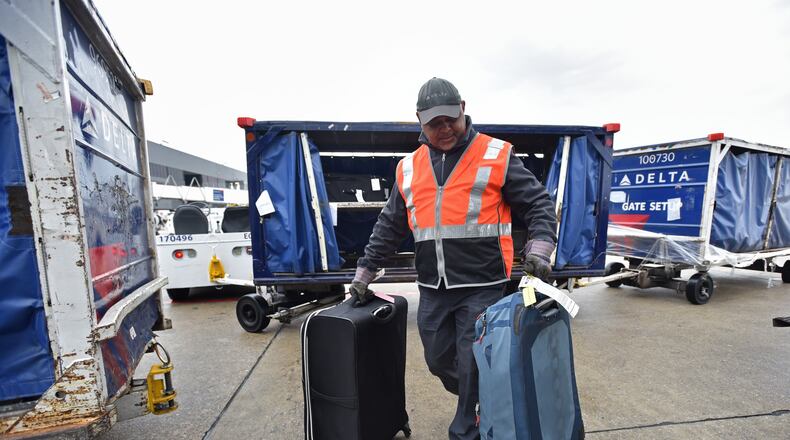Airlines brought in about $4.9 billion in baggage fees in 2018, according to a new report out Monday.
That's up from nearly $4.6 billion in airline bag fee revenue in 2017, the U.S. Bureau of Transportation Statistics data show.
Some of the biggest carriers racked up the most revenue from checked bags. American Airlines, the world's largest airline, brought in $1.2 billion in baggage fee revenue last year, the highest among U.S. carriers.
In 2nd place was United with $888.7 million in bag fee revenue.
Atlanta-based Delta Air Lines brought in nearly $788.5 million from baggage fees, putting it in the No. 3 spot. That's a decline from the $907.6 million in bag fee revenue Delta had in 2017.
Last September, Delta increased its checked baggage fees to $30 for a first checked bag and $40 for a second checked bag -- up $5 from the previous fees. Delta made the move after United and JetBlue put in similar increases.
Not everyone pays bag fees, however. For example, Delta waives bag fees for its Medallion-level frequent fliers.
Holders of some Delta American Express gold, platinum and reserve cards can also check a first checked bag for free on Delta flights. Notably, Delta says it has added 1 million new American Express card members annually for the past two years.
Spirit and Frontier, which charge for both checked and carry-on bags, were in the No. 4 and No. 5 spots for bag fee revenue in 2018.
Southwest Airlines, the second-largest carrier at Hartsfield-Jackson and one that still allows two free checked bags, came in 10th out of 11 carriers in baggage fee revenue with $49.9 million in 2018.
Baggage fees are one focus of a lobbying fight by an airport industry group pushing for an increase in federal fees charged to passengers to generate more funds for airport improvements and construction.
That’s because bag fees are not taxed at the same 7.5 percent excise tax rate on airline tickets, according to the American Association of Airport Executives.
As a result, the airport association contends the federal Airport and Airway Trust Fund lost more than $367 million in revenue last year, and a total of $2.9 billion since 2008.
AAAE argues the tax code and the $4.50 cap on the passenger facility charge that travelers pay for each leg they fly should be updated “to reflect the airlines’ increased focus on bag fees and ancillary revenue.”
Airlines have objected to airports’ efforts to hike the passenger facility charge, saying it would raise the price of flying and that airports already have plenty of cash on hand.
About the Author
The Latest
Featured



